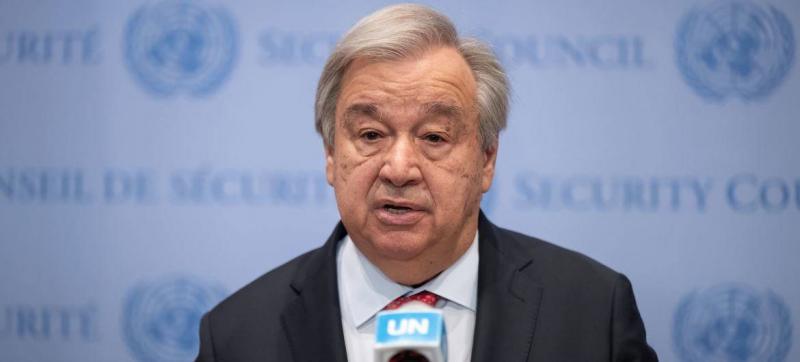UN Secretary-General António Guterres called on Russia on Monday to return to an agreement that allows for the safe export of Ukrainian grain via the Black Sea, in line with a proposal he presented to President Vladimir Putin earlier this month. Russia withdrew from the agreement last week, stating that its demands for the removal of obstacles to its food and fertilizer exports were not met, and that Ukraine had not sent enough grain shipments to poorer countries under the Black Sea agreement.
Guterres stated at the UN Food Systems Summit in Rome on Monday, "With the expiration of the Black Sea Initiative, the most vulnerable will pay the highest price. When food prices rise, everyone pays the price." He added, "This is devastating for vulnerable countries struggling to feed their people." He continued, "I remain committed to facilitating access to global markets for food products and fertilizers from both Ukraine and the Russian Federation, and to providing the food security that every person deserves."
Guterres also urged "the Russian Federation to return to implementing the Black Sea Initiative in accordance with the latest proposal presented." He appealed to the international community to stand united in finding effective solutions to this critical effort.
Guterres had sent a message to Putin on July 11 in a last-ditch effort to save the agreement, proposing an extension while allowing four ships to sail to Ukraine and four ships to depart from it daily, in exchange for reconnecting one of the Russian agricultural bank branches to the SWIFT international payment system. A key demand from Moscow was the reconnection of the Russian agricultural bank to SWIFT, which the European Union had decided to disconnect in June 2022.
The UN and Turkey brokered the Black Sea Grain Agreement last year in an attempt to address the global food crisis that worsened due to Russia's invasion of Ukraine in February 2022. Ukraine and Russia are major grain exporting countries. While Russian grain exports have increased since the start of the war on Ukraine, its exports of ammonia and potassium-based fertilizers have seen a sharp decline.




